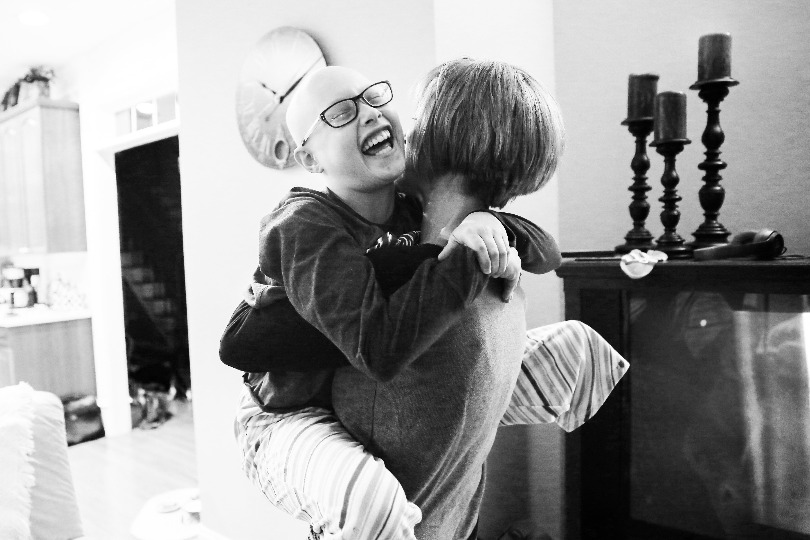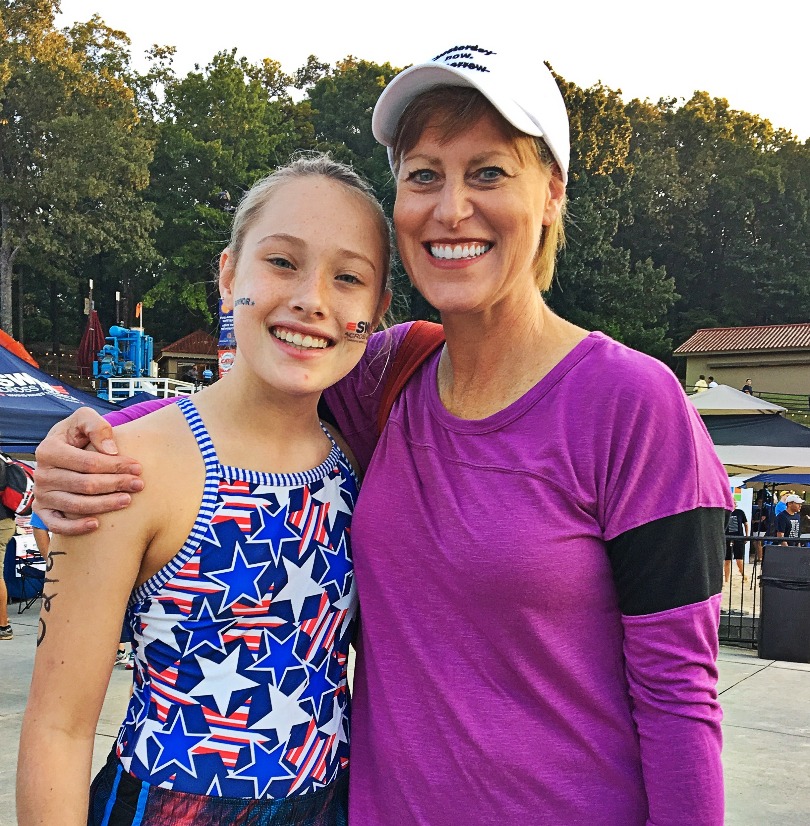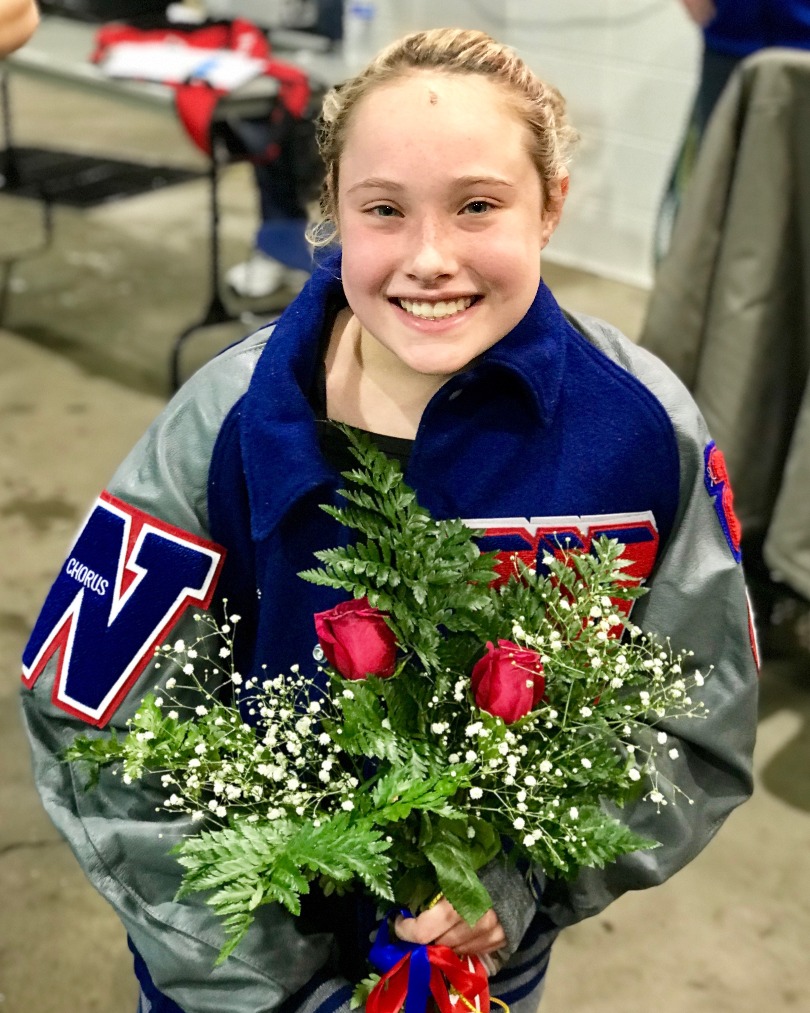What should you say to someone whose loved one has died? Vicki Bunke has some simple advice that comes from heartbreaking experience — her 14-year-old daughter, Honored Kid Grace, died of bone cancer in March. Here’s what Vicki has to say …

Vicki’s daughter Grace grins and laughs in her mom’s arms. Grace was diagnosed with osteosarcoma when she was 11 years old and lost part of her leg to the disease. After her third relapse, she knew her disease was terminal but remained determined to experience everything life had to offer. Photo by Ashton Songer Photography
For 20 years, I have had the privilege of working as a school psychologist. I am honored to get up every morning and go to a job where I get to spend hour after hour interacting with young people. Sadly, this past spring, a young student who attended the high school where I work — and whom I loved dearly — died of osteosarcoma, a childhood bone cancer.
This student happened to be my 14-year-old daughter, Grace.
June 11, 2018, marked my last workday of this school year — a school year that started out on an odd number but ended even, unlike our family. We began the school year as an even-numbered group (population four) but ended the school year as an odd-numbered group (population three) with one fewer place setting at the table.
Sometimes I sense that people feel odd about what to say to us. But guess who doesn’t? Children. Which is why I am more sad than usual that the school year has come to a close. For the next few months, I won’t have the chance to spend most of my waking weekday hours surrounded by lots of children and young people.
Children and young people possess remarkable wisdom and humor and genuineness. In fact, every single day at work, I am reminded of the astounding-ness and realness that resides in all of them. My first day back to work following Grace’s death was a perfect example. While I was walking down the hallway that morning, a young boy that I don’t know walked up to me and said, ‘I heard your daughter died.’ ‘Yes, yes, she did,’ I replied.

Grace stands with her mom at the pool, one of Grace’s favorite places. A few months before Grace died, she made the U.S. Paralympic swimming team.
I know what you might be thinking. You might be thinking, ‘Oh my gosh! How awful! I can’t believe he said that to you!’ I even have a strong suspicion that had his parents been in the hallway with him at that moment, he would have received a squeeze on the arm, a stern look, and I would have received an apology from them for their son’s words.
But it would have been unnecessary. Because what he said was correct.
My daughter had just died, and he was simply recognizing that fact in his conversation with me. Had his parents been there, they might have interjected or interrupted him and then he would not have had the chance to add the following, ‘I am really sorry’ before hugging me around my legs. And I would not have had the chance to say, ‘Thank you. I hope you have a great day!’ before he skipped off down the hallway to the restroom.

Grace’s nickname was ‘Amazing Grace’ and it fit. Despite three relapses and the knowledge that her curative treatment options were exhausted, Grace continued swimming competitively and living life to the fullest. She died in March, just before her 15th birthday.
Unlike children, we as adults often find ourselves stressing out about saying the right thing to someone who has experienced the recent death of a loved one. I am not sure why, but I think part of it is because no one wants to make the other person sad or upset. We desperately want to make things better. But alas, we are not walking Hallmark cards. We don’t always know the exact right words to say, plus grief isn’t something you can fix by turning an eloquent phrase.
The internet is full of lists of things people should or should not say to people who have lost a loved one. If I were to compile a list on this topic, it would be super short. It would simply say: Let’s all be kind to each other. When speaking to someone whose loved one has died, let’s all be more like that little boy who spoke from his heart and hugged me around my legs. Let’s be more like kids.
Kids like Grace and their families deserve more. Fund lifesaving childhood cancer research today and give kids with cancer the chance to live long, healthy lives.
Read more on the St. Baldrick’s blog:

 SBF
Tweets »
SBF
Tweets »